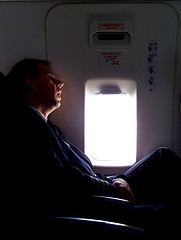
flic.kr/p/puu7s
If you spend sleepless nights due to snoring, it’s time to make a little noise. Whether you snore, or share close quarters with someone who does, you should know that there are surgical methods that can stop the problem. When other stop-snoring remedies have failed, ask your doctor about surgical options.
Several different surgical methods are available to control or eliminate snoring. Here are some details on the most common procedures:
* UPPP or Uvulopalatopharyngoplasty: This procedure expands the airway, often ending the snoring. It’s an expensive procedure that may require follow-up surgery if or when the blockage returns. There are also concerns that this surgical method can pose elevated risks of hemorrhaging and post-surgical infection, and may cause swallowing problems or speech defects.
* LAUP or Laser Assisted Uvuloplasty:
The surgeon uses a laser to remove the uvula and any other tissues that are obstructing the airway. Tonsils are not removed. This procedure does not have a high success rate, and is not recommended for those using their voices to make a living. In addition to vocal changes, patients may also experience dry mouth and ear pain. It is also possible that this procedure can inadvertently hide other underlying problems.
* CAPSO or Cautery-assisted Palatal Stiffening Operation: As the name suggests, this procedure uses a device to burn the palate, making it stiffer and less likely to vibrate. Like the other procedures, unfortunately, this type of surgery carries a host of potential problems.
This particular surgical procedure is still in the experimental stage, so doctors have not been able to predict the chances for a successful outcome. It is also a fairly expensive procedure and there is a great deal of pain during recovery.
Sleep better! Check out the world's Best MATTRESS TOPPER.
* Tracheostomy: To perform this type of surgery, the doctor creates an opening in the trachea. As you can imagine, there are several drawbacks. Tissues can become very irritated, scarring can occur and follow-up surgery may be required.
When it comes to snoring surgery, there seems to be more questions than answers. Each of these procedures is intended to increase airflow, but not every one is a guaranteed success, because we don’t all snore for the same reasons. That’s why it’s important to try other treatment methods before moving forward with snoring surgery.
All types of surgery are serious procedures that pose certain risks. Snoring surgery works for many, but certainly not all, patients. Even successful procedures require a great deal of healing time and potential side effects that can easily outweigh the benefits.
Which one of these is this the world's best foam mattress?
Candidate "A"
Candidate "B" -- you decide 🙂
Tagged with: sleep apnea treatment • snoring treatment
Filed under: Snoring